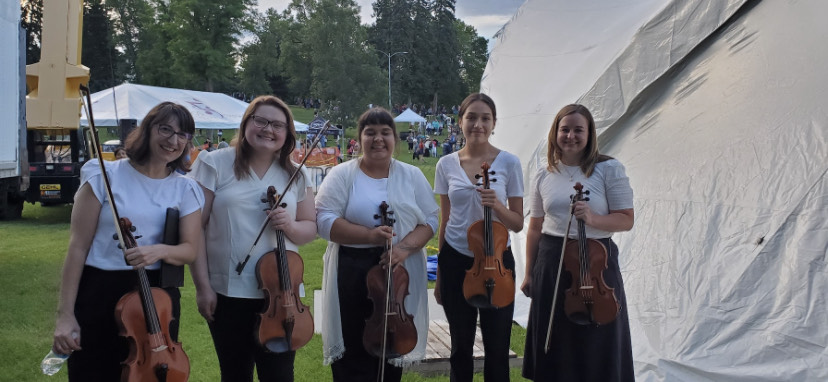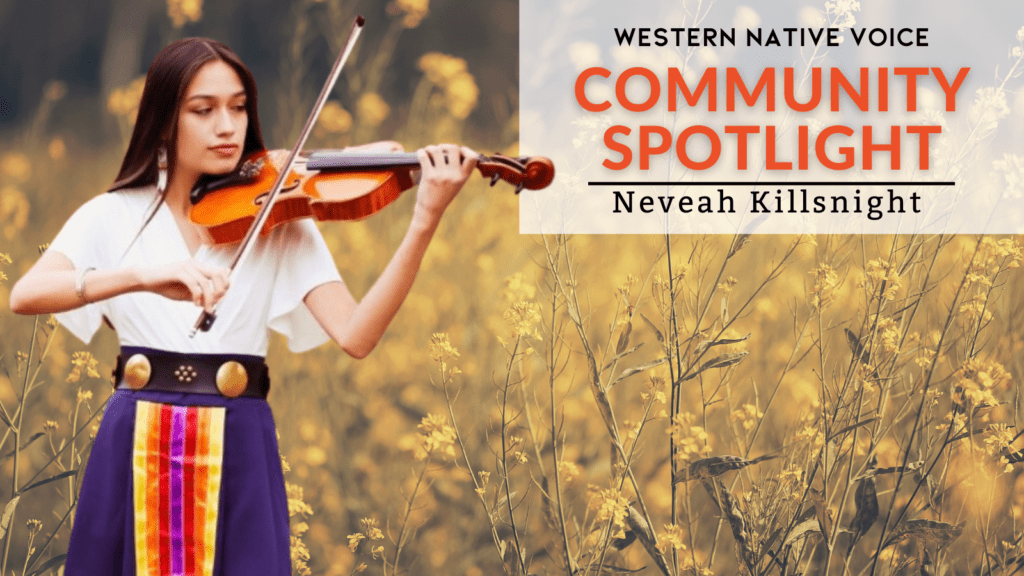
Connecting with community through music and dance.
This month we visited with 18-year-old Neveah Killsnight, an enrolled member of the Northern Cheyenne Tribe. Neveah is heading into her first year of college at the University of Montana, a celebrated violist, and the Summer 2023 Intern at Western Native Voice.
Tell us a little about yourself.
I was born in Bozeman, and my mom was graduating then. She graduated two days before I was born. So I lived in Bozeman for two years, and I don’t remember any of it because I was so young. But then, we moved to Albuquerque, New Mexico, and I lived there until I was ten. Growing up, I loved the food and the culture, but New Mexico was really hot. And then that’s when my mom decided she wanted us to be connected to our culture and know where we come from. That’s when we moved back up to Montana, and we lived in Busby for a little bit with my grandpa for two years. And that’s when I started to jingle dress dance again and learn about my family and everything. I went to St. Labre for two years, and then we moved up to Billings. That was a culture shock because it wasn’t as diverse. I went from being in a classroom of Natives to just me being the only one. That was hard to get used to. Being different isn’t a bad thing.
How was the experience of being the only Native in your class when you moved to Billings? Do you feel like it shaped you in any way?
People didn’t understand why I was quiet or the way my family was or stuff like that. I was different from other people. And because I was in the minority, it felt like nobody really understood me. But as I grew older, I understood that’s just who I am, and I got used to being different.
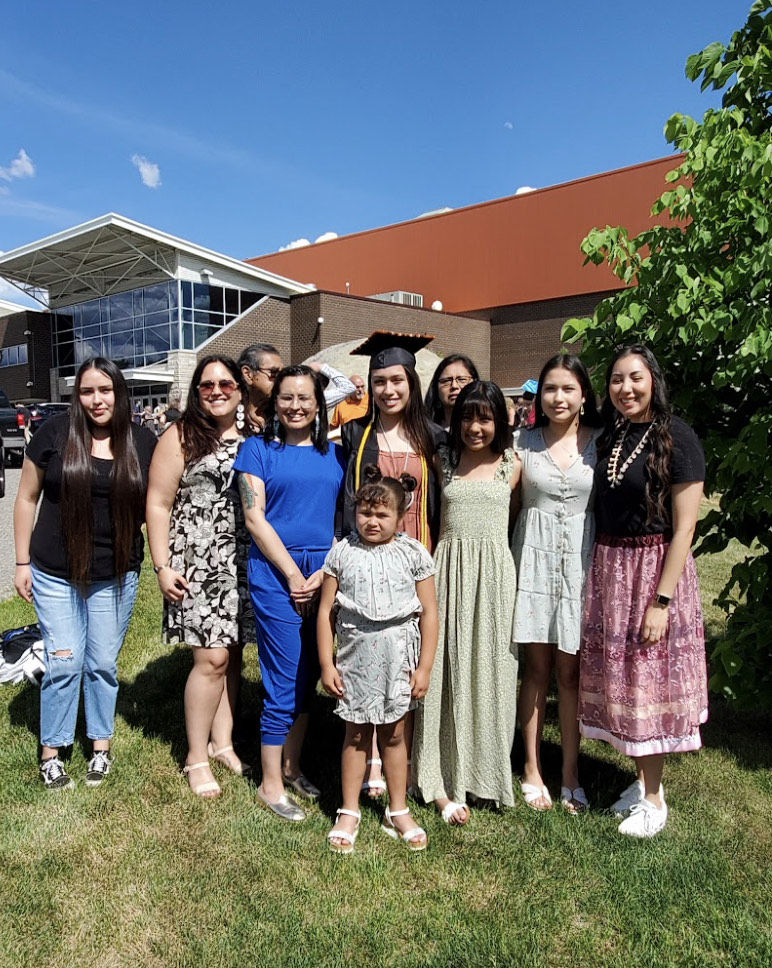
What made you want to apply as an intern at Western Native Voice?
I wanted to challenge myself and get out of my comfort zone, especially before college. I felt like it would be a good way to prepare. And also, I like the work that Western Native Voice does within the tribal communities.
What’s the most interesting part of being an intern at Western Native Voice?
I’ve learned about many issues in my community that I didn’t know were problems, like the census and voting. I didn’t know about that until now and didn’t realize how huge those were.
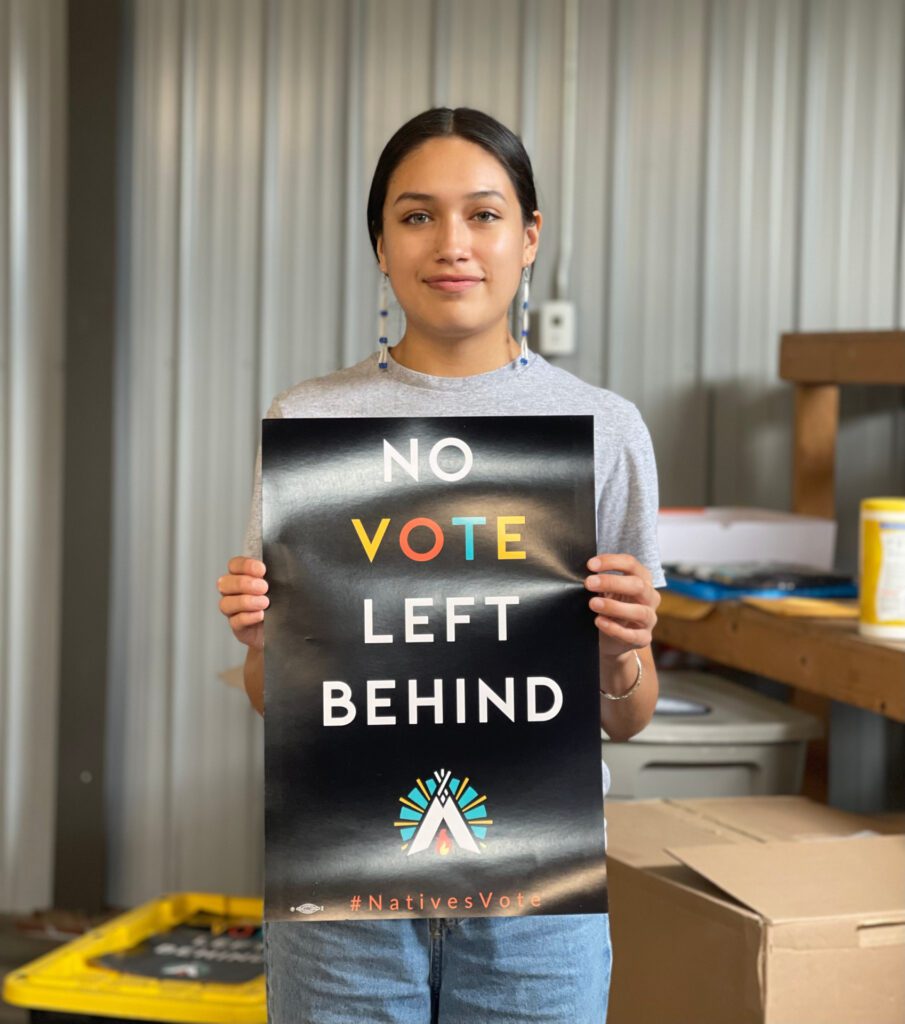
How did your journey into music and playing the viola begin?
I’ve been playing the viola for eight years now. At first, I wanted to quit, but my mom wouldn’t let me. So I didn’t. I’m actually really grateful she said she didn’t let me stop because I’ve traveled a lot because of the viola. I also met a lot of my friends through orchestra, and I love playing music. It’s the main way I make connections with other people. Music can bring people together. When I play music for people in my community, I can bring people together.
How did you come to choose the viola and what did that journey look like for you?
The violin is too high. It hurts my ears, and everyone plays the violin. Nobody knows the viola, so I decided to play it.
I didn’t have lessons when I first learned how to play the viola. For the first three years, I watched YouTube videos and taught myself. I made a lot of progress, which was surprising because it was hard. I also learned how to play the violin and a little bit of the cello. For a lot of families, it’s different. It usually runs in their family if they want to make a career, especially in classical music. Most people start early, when they’re four years old. I got a late start compared to other people trying to make a career out of it. I didn’t get private lessons until eighth grade and made even more progress. But yeah, it all started with YouTube videos.
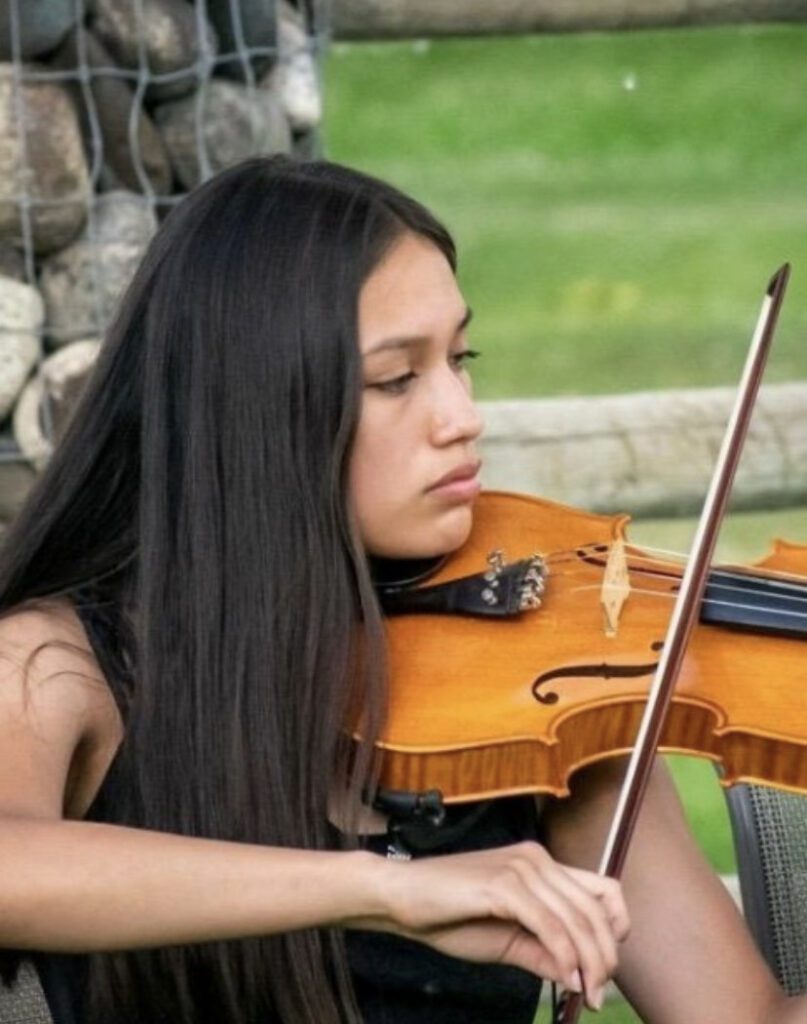
What does the future look like for you and your music?
I’m starting at the University of Montana in Fall 2023 and will study music performance.
I want to play in different symphonies, ensembles, and gigs. And I want to look more into composition because there aren’t many Indigenous composers, artists, or musicians in classical music. I met another Indigenous violist this month, but that was my first time playing with another native in a professional orchestra. When we were talking, she said she only knows of three violists who are native.
How does your culture and community impact the way you play or how you want to play in the future?
My culture and community definitely impact the way that I carry myself.
I represent my whole community while playing in an orchestra, so I have to carry myself well and represent well.
As far as what I play in the future, in classical music, most of the music you learn is 200 years old and written mostly by white men. I know that many new composers are coming out these days from underrepresented communities, and I want to learn and study that kind of music more.
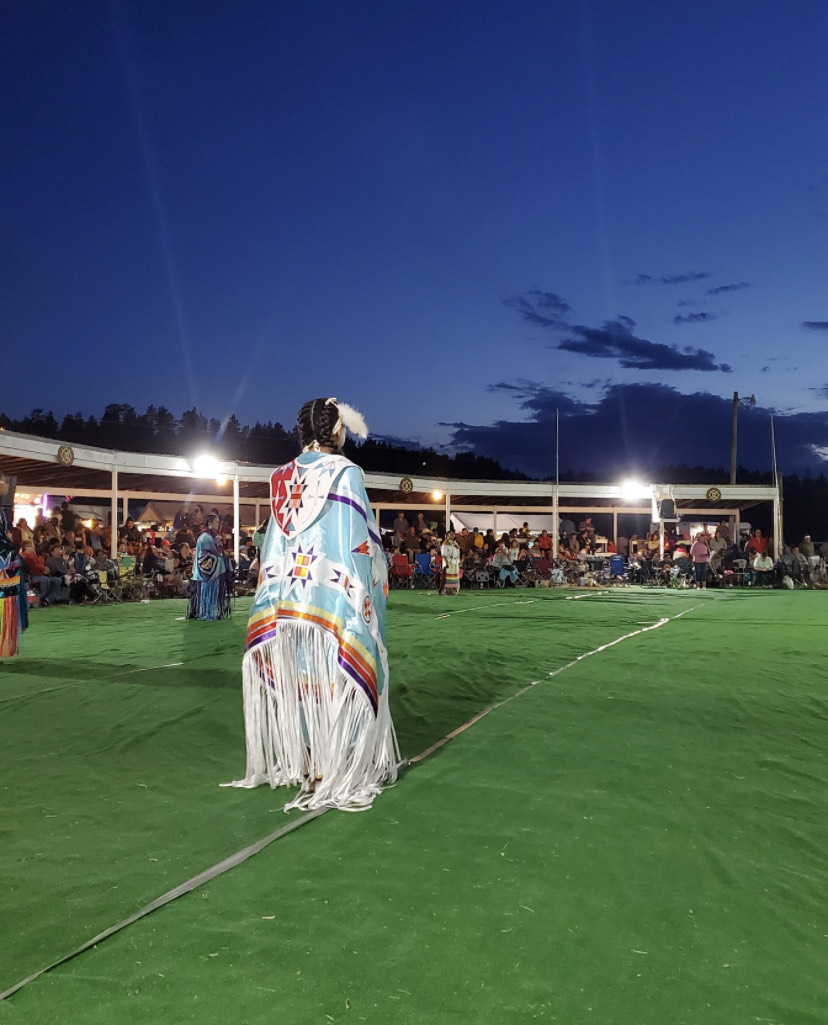
Talk about an experience (good or bad) in your life that was challenging.
I used to dance a lot when I was little and was really into it. But then, when the powwows stopped during Covid, I stopped for a while and got busy with school. I just started dancing again this year, and it’s a lot more challenging than I remember. I used to do Jingle, but now I started doing Fancy, and that’s probably why because Fancy’s like a workout. It’s also hard to put yourself out there when you’re learning and have everyone watch you, but also it’s really fun.
Why do you like to dance?
It’s not just about dancing. It’s also about the powwows. My family is there, and it helps me reconnect. It’s a nice little break from when I’m always in Billings. It’s nice to go back home and see people and dance.
What advice would you give to another Native woman around your age wanting to pursue music, an internship, etc.?
I’m working on getting out of my comfort zone right now. It’s weird but also good for you. Being super uncomfortable can be a good learning opportunity. Don’t be afraid of making mistakes because that’s part of learning. I’m a perfectionist, so I have a hard time making mistakes. It’s okay to make mistakes, and I’m learning that.
